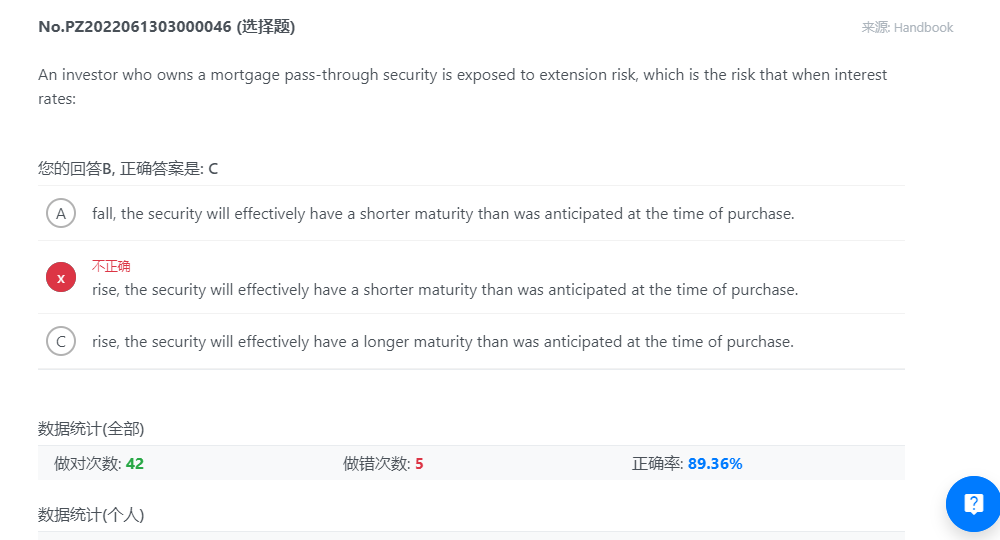NO.PZ2022061303000046
问题如下:
An investor who owns a mortgage pass-through security is exposed to extension risk, which is the risk that when interest rates:
选项:
A.fall, the security will effectively have a shorter maturity than was anticipated at the time of purchase. B.rise, the security will effectively have a shorter maturity than was anticipated at the time of purchase. C.rise, the security will effectively have a longer maturity than was anticipated at the time of purchase.解释:
C is correct. Extension risk is the risk faced that when interest rates rise, fewer prepayments will occur because homeowners will be reluctant to give up the benefits of a contractual interest rate that is now lower than the market rate. As a result, the security becomes longer in maturity than anticipated at the time of purchase.
A is incorrect because extension risk is the risk faced that when interest rates rise (not fall), fewer prepayments will occur because homeowners are reluctant to give up the benefits of a contractual interest rate that is now lower than the market rate. As a result, the security becomes longer in maturity than anticipated at the time of purchase.
B is incorrect because extension risk is the risk faced that when interest rates rise, fewer prepayments will occur because homeowners are reluctant to give up the benefits of a contractual interest rate that is now lower than the market rate. As a result, the security becomes longer (not shorter) in maturity than anticipated at the time of purchase.
考点:prepayment risk
解析:展期风险,是指当利率上升时,投资者面临的风险。当利率上升的时候,借款者倾向于延期还款,贷款的提前偿还速度没有达到之前预设的提前还款速度,导致证券化的产品的偿还速度没有预设快,产品maturity被拉长。那么产生的则是extension risk。




